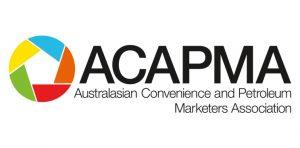By Australasian Convenience and Petroleum Marketers Association CEO Mark McKenzie.

Last Sunday (19 September 2021), the Victorian Government released its Covid Reopening Roadmap. This Roadmap indicates that the reopening of the Victorian economy will commence with the cessation of the Melbourne Lockdown when at least 70% of the population has received both vaccination doses (likely around 26 October 2021). Significant restrictions will, however, remain in place for metropolitan businesses with lesser restrictions in Regional Victoria.
Once 80% of Victorians aged over 16 years are double vaccinated – likely around 5 November 2021 – the restrictions in metropolitan Melbourne will be reduced to align with the restrictions in Regional Victoria. The final stage will occur when 80% of Victorian’s aged over 12 years are double vaccinated – likely around 19 November 2021 – when the restrictions across all of Victoria will largely revert to precautionary mask wearing and physical distancing.
The release of the Victorian roadmap follows the release of the NSW Roadmap two weeks earlier. This Roadmap predicts that the NSW economy will move to the first major stage of reopening on or before 11 October 2021, when it is expected that 70% of all adults in NSW over 16 years of age will be double vaccinated.
The NSW Roadmap differs markedly from the Victorian Roadmap in that the first stage of 70% double vaccination involves a significant lessening of restrictions on community movement and business activity – but these concessions are only to be afforded to those who are vaccinated (or who have a medical exemption from being vaccinated). It is expected that 80% of the population (aged over 16 years) will be double vaccinated by the end of October, but the detail of the restrictions to apply from this time are still subject to ongoing discussion.
While it is great to see the release of these roadmaps in NSW and Victoria, these documents lack specific detail in respect of the proposed Test, Trace Isolate and Quarantine (TTIQ) Plan that will be put in place to support the Reopening Roadmaps.
This lack of detail is generating a large number of understandable questions by businesses in all industries and ACAPMA is currently liaising with both State Governments in respect of this detail.
Development of the supporting TTIQ regime is somewhat dependant on an understanding of what is likely to happen once the economy reopens. An indication of what is likely to occur can be obtained by examining what has happened in other countries that have reopened in similar circumstances. And the UK is a case in point.
The UK removed virtually all restrictions on Saturday 19 June 2021. At this point in time, the UK was averaging around 8900 new COVID-19 cases per day. Just four weeks later, the country was averaging over 45,000 cases per day which represented a five-fold increase in new daily cases. Since that time, new daily cases have trended downward to the point that the current daily average is just over 29,000 – still more than three times higher than the pre-opening average.
While the sharp increase created some initial challenges for the UK hospital system, the system was able to cope with the increase due to around 70% of the population having been double vaccinated – and hence the rate of hospital admissions was apparently lower than had been experienced in the previous largely unvaccinated population.
But putting the health experience aside, there were some very important lessons in respect of the TTIQ practices of the UK government – specifically, in relation to the isolation practices that were adopted following the reopening of the national economy.
Despite widespread double vaccination rates, the UK government continued to require businesses to put staff who had been exposed to a covid case into 14 days isolation – regardless of whether they had been vaccinated or not. The five-fold increase in cases meant that there was a five-fold increase in exposure sites and so this requirement resulted in large numbers of staff being forced into isolation, creating significant challenges for the economy and UK society at large.
By early August, some industries (such as general retail and food and grocery) were reporting widespread supply chain issues with up to 30% of their outlets being closed or operating with substantially reduced outputs, because of large numbers of vaccinated staff being forced into two weeks isolation.
The impact of this staff loss was so widely felt across the UK economy that the previous impressive growth of 1% in economic output during July had subsequently reduced to just 0.1% by the end of August – potentially derailing the pace of national economic recovery.
The isolation rules were clearly unsustainable, and, in the end, the UK Government responded by changing the isolation requirements for vaccinated staff who had been subject to a Covid exposure. On Monday 16 August 2021, the Government removed the 14-day self-isolation requirement altogether for double vaccinated staff who had been exposed to a person with Covid-19. Instead, these staff were directed to undertake a Covid test as soon as practical and not return to work until they had received notification of a negative result.
At the time of this change in isolation requirements the average number of new daily cases was 29,000 and, despite a slight rise immediately after the announcement, the current average number of new daily cases continues to hover around 29,000 cases per day – strongly suggesting that the practice has not resulted in a material increase in overall case numbers.
A key factor in the UK’s change to the isolation requirements was the ready availability of testing for staff exposed to a Covid case. Most staff were able to get tested and receive their result within 24 hours, thereby minimising the impact on individual businesses and associated supply chains.
Comparison of the UK experience with that of numerous other countries (i.e. USA, Germany, Italy, France, and Singapore) leads to similar conclusions. Clearly, there is a need for changes to be made to the testing and isolation elements of a national TTIQ plan that take account of vaccinated staff and guard against unacceptable economic impacts of economic reopening– impacts that cannot be justified on the grounds of material changes in community health risk.
ACAPMA believes that the UK experience provides some important lessons for Australia, and we are working co-operatively with the NSW and Victorian Governments – and other industry bodies – to explore how these lessons can be incorporated into our TTIQ practices on reopening of these economies.
Our intent is that reasonable changes to isolation practices can be put in place before the first stage of reopening occurs in NSW on 11 October 2021.
But the big message for all of our member businesses is simple – the need for all of your staff (excluding those with medical exemption) to be vaccinated prior to reopening is critical.
Published with permission from ACAPMA.
Source: https://acapmag.com.au/2021/09/covid-reopening-lessons-from-the-uk/.




